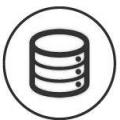If you want to know how to extract causal information from observed data, this course is for you. The course is aimed at graduate students and researchers in the social sciences, population health sciences, and business. We introduce key tools from statistics, economics, and computer science to learn when and how researchers can draw causal conclusions from observational (non-experimental) data. We adopt the modern potential outcomes framework of causal inference and draw liberally on graphical notation and conventional structural equations to aid understanding.
Sign up for our weekly newsletter!
This is an archive of our past training offerings. We are looking to include workshops on topics not yet covered here. Is there something not currently on the list? Send us a proposal.
R markdown is a fast, simple, and convenient way to generate fully reproducible documents based on the R syntax that you are already using for your analyses. Are you presenting at lab meeting? You can copy and paste your .R into .Rmd, click one button, and create a presentation that can be opened on any computer with a web browser. Do you want to support reproducibility in science?
THIS WORKSHOP IS FULL!
This four day R Intensive will provide an introduction to R.
Day 1: R for Beginners with Clara Cohen
This workshop will present options for developing a personal website to promote your academic or professional activities. We will demo and discuss some of the different tools, technologies, and web hosting platforms, including Github pages, Wordpress, Wix, and Drupal. We will also touch on design and content strategies. The workshop will assume no programming or web development experience.
This workshop series will introduce attendees to the reason for using a qualitative data analysis package for the coding and analysis process. We will begin by discussing the distinction between coding and analysis, the benefits of using a QDA package, and then view a brief demonstration of a specific program.
This 3-part Stata workshop will take place in a teaching computer lab environment, using publicly available data replicating a published economics paper.
DAY ONE will cover:
Get an orientation to the basics of working with social science data in python. We'll start from the ground up, from the basics of naming variables, making decisions, and repeating operations.
This workshop will provide an introduction to spatial databases using PostGIS, an extension to PostgreSQL, a free and open source database management system. Topics to be covered include installing PostGIS, creating a spatial database, importing spatial data, and querying spatial data. Some knowledge of PostgreSQL is recommended but not required.
Come take a break from your end of the semester work and enjoy coffee, cookies, and nibbles at the D-lab! We will be hosting a study break on Thursday, May 7 from 3pm to 5pm. This is a great chance to learn about what will be happening at the D-Lab over the summer and to provide us with your ideas of what we should offer in the fall. Please register to make sure we have enough snacks.
The microblogging platform Twitter has become a popular tool both for the analysis of social data (relationship networks, information transmission, linguistic changes) and creating conversations around social issues.
This workshop will provide an introduction to relational databases and SQL using PostgreSQL, a free and open source database. We will cover the basics of installing postgresql on a Windows PC, Mac, or linux computer, creating a new database and database tables, and querying and managing the databases with SQL.
This workshop will cover the main types of weighting, to correct for bias in sample data. These types of weights are designed to compensate for different selection probabilities, to correct for non-response, and to post-stratify data to match the demographic distributions found in census data or other criterion distributions.
The D-Lab is hosting an orientation where graduate students interested in working at the D-Lab can come and learn more about the D-Lab, open positions, and the D-Lab Culture. Join past and current D-Lab grad students for 30 minutes of introduction and 30 minutes of Q&A.
This workshop will cover the basic principles and methods of sampling. Topics will include a discussion of the various types of samples, the creation of sampling frames, the use of stratification, and basic methods of selecting samples. Determining an appropriate sample size will also be discussed.
Come join us at an open-door, OpenStreetMap event to help digitize building footprint records to assist in the Nepal earthquake recovery efforts. OSM tasking manager is a crowd-mapping tool funded by US-AID, the World Bank, AusAID, and others.
**Note: This workshop was rescheduled from Tuesday, April, 21 to Thursday April 30, 2015 **
This 3-hour Stata workshop is designed for people who have already taken D-Lab's 'Beginning Stata' and 'Intermediate Stata' workshops or have significant previous experience with Stata. Students will review regression analysis, and basic regression output, and discuss two major topics:
Ensemble machine learning methods combine the power of several different algorithms into a single algorithm with the aim of achieving higher predictive power than any of the constituent algorithms. Practitioners may prefer ensemble algorithms when model performance is valued above other factors such as model complexity andtraining time. In this talk, an overview of ensemble learning and ensem
Google is synonymous with big data and the computational and statistical tools that make it possible. What role can, and do, social scientists play? Drawing on examples from quantitative analysis at Google Maps, Mark Huberty will discuss the relevance of social science research and concepts to today's large-scale data revolution.
Coding is done, now what? You’ve finished coding your qualitative data and now it’s time to start the “analysis” process. Where do you start? Through this interactive workshop session, qualitative researchers will learn several approaches to transition from coding to analysis. Researchers in all phases of the qualitative research process are welcome to attend.







